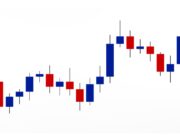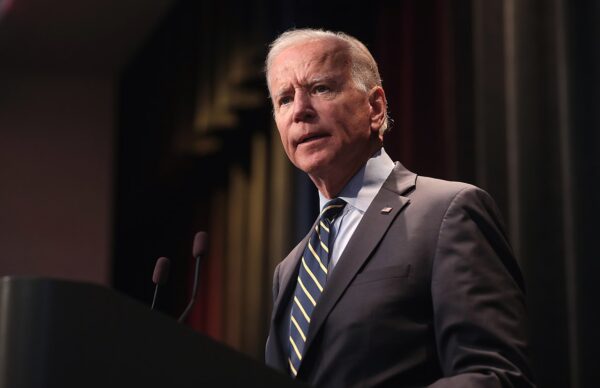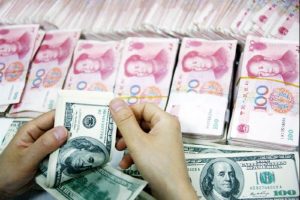You know I’m not in the habit of sugar-coating things, so I’ll come out and say it: I still love the giant Chinese tech stocks that trade on American exchanges.
Why do I love them? Why else? Because I believe you can make money on these stocks. Lots of money, and on the “long” side, no less.
It flies in the face of the prevailing conventional wisdom on U.S.-listed Chinese tech stocks, but I’ll show you in a second, it’s true.
There is a “catch” here, however. There’s only one way to play this – only one strategy that makes perfect sense for all these U.S.-listed Chinese tech and electric vehicle stocks.
This strategy has us bagging all the upside I see here while avoiding the potential market consequences of an escalation of the U.S.-China spat.
And if you’ve sold your Chinese shares already, that’s fine – optimal in fact. See, you don’t have to actually own these stocks.
Here’s what to do…
The Real Reason U.S.-Listed Chinese Stocks Are Sinking
Stocks like Baidu Inc. (NASDAQ: BIDU), Alibaba Group Holding Ltd. (NYSE: BABA), JD.com Inc. (NASDAQ: JD), newly-listed DiDi Global Inc. (NYSE: DIDI), and my favorite Chinese EV company, NIO Inc. (NYSE: NIO) are taking it on the chin. And while they may look like they’re at or approaching bargain-basement trading levels – where you and I ordinarily would want to really load up on them – I have to say that the odds of more selling are quite high.
What’s going on with this group of stocks has little to do with the usual financial metrics.
The truth is, there’s an increasingly heated “cold war” being waged between the United States and China, and – you guessed it – the stock market is one of the front-line battlegrounds.
So, the problem with Chinese stocks is one of politics – not profits.
Not many American investors are aware that foreigners aren’t legally permitted to directly own the “A” shares of Chinese companies listed on Chinese exchanges. While there are reasons for that, the core objection is Beijing doesn’t want foreigners gaining influence over the Chinese economy, over the Chinese population – which is why regulators have a particular issue with outsiders owning stakes in ventures in the media or telecom sectors, which reach deeply into everyday life there.
Even so, these Chinese firms want to tap the trillions of dollars in capital flowing through Wall Street – so they use a loophole that allows them to list their shares on foreign exchanges like the New York Stock Exchange and Nasdaq, where foreigners, especially Americans, are free to buy and sell vast quantities of shares every day.
To list on foreign exchanges, Chinese companies establish variable interest entities (VIEs) in “offshore” locations like the Cayman Islands. VIEs contract with the home-based company to transfer control of the company to its VIE, which then seeks to go public on a foreign (i.e., non-Chinese) exchange. Some companies list themselves on multiple exchanges; Hong Kong is a favored destination for dual-listed companies.
Though such moves blatantly sidestep China’s rules on foreign ownership of important companies, various state regulators have routinely looked the other way – because the country’s ruling Communist Party recognizes the benefits of these transactions. It allowed – make that wanted – foreign investors to bid up the value of growing Chinese companies, especially when trade between China and the United States was friendly and growing rapidly.
In turn, U.S. regulators – principally the Public Company Accounting Oversight Board (PCAOB – often called “Peek-a-Boo”), which is directly overseen by the U.S. Securities and Exchange Commission (SEC) – looked the other way, too. They simply didn’t hold Chinese companies listed on U.S. exchanges to the same strict “disclosure” requirements that every other firm (including U.S.-based ones) are held to.
Chinese companies listed in the United States, however, have never submitted audited financials to any U.S. regulator. They claim they’re not allowed to, that China’s national-security laws prohibited Chinese companies from turning over audit papers.
Now, under the threat of an escalating trade war, the formerly rosy, live-and-let-live attitude U.S. and Chinese regulators once had is dying on the vine.
In 2020, when then-U.S. President Donald Trump wanted to put trade pressure on China, he signed the Holding Foreign Companies Accountable Act, a move that strengthened the PCAOB’s ability to demand audited financials. Under the new rules, a company could be delisted from U.S. exchanges after three consecutive years of audit-inspection noncompliance. But it could also return by certifying that it had retained a registered public accounting firm approved by the SEC.
As new cold war rhetoric heats up between the United States and China, China’s Internet regulator, the Cyberspace Administration of China, enacted new rules on “security reviews” as part of its framework for “safeguarding the nation’s digital infrastructure.” Rules mandating security reviews aimed at addressing the risks to national security and business continuity posed by the servers, software, cloud services, and other products that major tech companies use are being seriously beefed-up.
The revised internal Chinese rules say a security review would be mandatory for any business, overseas- or domestic-listed, possessing information on more than 1 million users that seeks to list its shares abroad.
Even though it looks like Chinese regulators are punishing their own companies, there’s zero intent to ruin them. Beijing wants a measure of absolute control over the massive amounts of illuminating data that Chinese tech “platform” ventures generate and store – whether it’s “what did they buy?” data from Alibaba or “where did they go?” data generated by ride-hailer DiDi.
And while many investors believe it’s the clamp down by Chinese regulators that’s pounding U.S.-listed shares of otherwise gigantic and profitable Chinese companies, that’s not at all the case.
It’s the U.S. rhetoric on PCAOB compliance that’s pounding the shares.
All of this is setting up a scenario of “mutually assured destruction,” or MAD – not unlike the one that had the United States and the Soviet Union squaring off during the first cold war.
Call it the stock market “nuclear option” – the “MAD-dening” scenario would play out like this…
This Is the Potential Market Nightmare
Since Chinese companies aren’t submitting audited financials, U.S. regulators could (maybe would) delist all Chinese stocks trading on U.S. exchanges.
Given that threat, China’s state regulators are threatening to delist their companies anyway, because they could all trade on the Hong Kong exchange, which allows foreign investors to buy as much of those shares as they want.
What’s being called “Hong Kong happy talk” says that if Chinese companies delist from the United States and trade in the world’s third-most important financial hub, Hong Kong, then that move would drive more foreign capital – including U.S. capital, to be sure – toward Hong Kong and mainland China, too.
The impact on U.S. investors would be huge on account of the fact that there are Chinese VIE companies listed on U.S. exchanges, including Alibaba, Baidu, JD.com, PetroChina Co. Ltd. (NYSE: PTR), and NIO, with cumulative market capitalization of almost $2 trillion.
“If a delisting is imminent, the stock price is going to plummet and those who control the company can buy out public investors for a bargain, go private, and relist in Asia at a much higher valuation and make a ton of money – at Americans’ expense,” Jesse Fried, a Harvard Law School professor who’s been studying the issue, told Barron’s.
U.S. regulators don’t want to hurt American investors who own hundreds of billions of dollars’ worth of U.S.-listed Chinese stocks. The mere whispers of a delisting wave have already eradicated billions in shareholder value. And actual delisting would nuke those values and leave American investors with fistfuls of “stranded” securities – shares that can’t be sold easily.
On the Chinese side of the wall, whether U.S. regulators do the delisting, or the Chinese call their companies home, delisting turns off the capital flows that come with American listings.
That would kill their share prices and hamper them operationally since the U.S. financial system’s relative efficiency gives players here access to lower costs of capital.
A few weeks ago, I would’ve told you that a true “MAD” scenario was a longshot – and that cooler heads would prevail.
Today, I’m not so sure. And that means there’s really only one way play all this MAD rhetoric.
This Move Could Be Outrageously Profitable
While you can stay invested in Chinese companies by putting money into mutual funds or exchange-traded funds (ETFs) that own the companies you like, that approach really waters down your returns – which is the entire point of doing this… since I believe Chinese firms are already trading at bargain levels compared to what they’re really worth.
That brings us to my “action to take” – the moneymaking strategy I promised. Because – as surprising as it sounds – there is one.
First, if you currently own any of these stocks, you can sell them now – in fact, my friend and colleague, Mark Sebastian, just showed you four to get rid of – to keep any profits you have, or to halt losses you may be incurring. You can use stops if you’re not already out of most of these positions. We’ve been stopped out of almost all Chinese plays we’ve been making money with in my subscription services.
Here’s how to play these bargain-basement shares – that could become moonshot stocks at any minute.
Since these stocks have come down hard and fast, the “implied volatility” (IV) in their call options has come down a lot faster than the implied volatility in their put options, which obviously have risen.
So the smart way to play a monumental bounce in what would otherwise be great stocks is simply to buy call options on them – even all of them, if you like.
To set yourself up for maximum upside and minimum risk, you want to trade calls at least six months out – January and February of 2022, or later, if possible.
The downside risk is limited to the premium you pay for the options – which is easily quantifiable and manageable on a risk/reward basis especially given the huge upside if this spat gets resolved, since share prices of these gems will shoot up in a near-vertical ascent.
If you want to play the potential resolution – if you believe there will be no “MAD” scenario – this is the way to go.
This is a smart risk/reward play – one that limits your downside and gives you exposure to what could be incredible upside.
If you’ve been with me for a while, you know I’m all about upside. Triple- or even quadruple-digit potential.
Case in point: The explosive U.S. IPO scene right now. A huge burst of American entrepreneurial innovation, along with $569 million in fresh capital flooding the markets since November 2020, has brought us to the point where around 500 – five hundred – companies are looking to go public in the United States alone.
You might also like:
- This $500 Trillion Resource Claim Belongs to American Citizens…
- Something big just broke
- Executive Order 14330: Trump’s Biggest Yet
- An estimated $2.2 Trillion Move Against China?
- Buy alert: Move $1,000 before Tesla’s Optimus launch
- Trump to “Reset” U.S. Economy on Scale Not Seen in 50 Yrs
- Nvidia CEO Makes First Ever Tesla Announcement
- 2 Nobel Prize winners warn of once-in-a-generation wealth shift…
- [LEAKED] Trump’s Next AI Executive Orders?
- The next biggest bull run in over 50 years

















